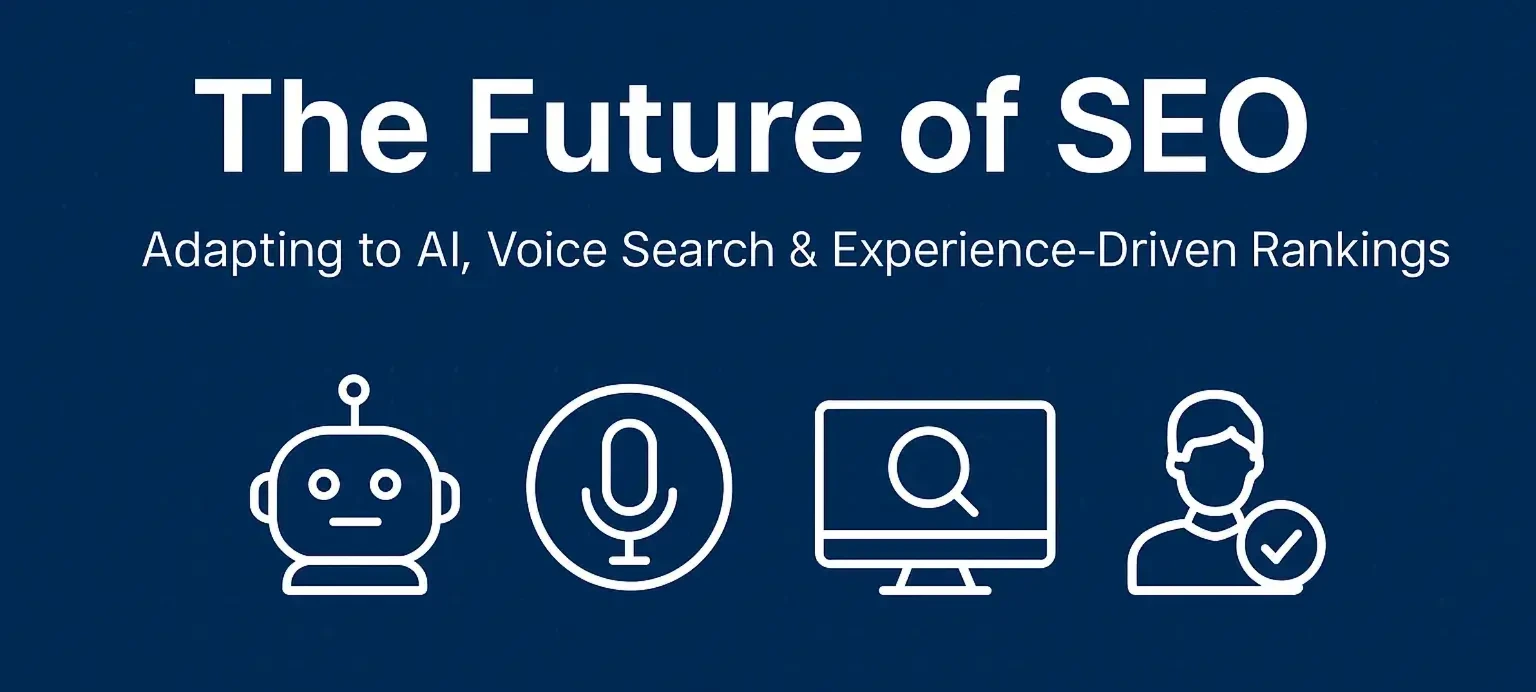
The Future of SEO - Adapting to AI, Voice Search & Experience-Driven Rankings
SEO Is Evolving - Faster Than Ever
The digital landscape is shifting, and so is SEO. From AI-driven results to voice assistants, the way people search - and the way search engines respond - is undergoing a transformation.
If you want to stay visible and competitive, your SEO strategy must evolve beyond keywords and links. It must align with how users interact with technology today and tomorrow.
1. AI-Powered Search & Google's SGE
Google’s Search Generative Experience (SGE) and AI integrations in Bing are redefining how search results are generated.
- AI is synthesizing answers from multiple sources
- Searchers are expecting conversational answers
- Featured snippets are evolving into dynamic overviews
What this means for you:
Create content that’s deeply informative, structured, and context-rich so AI models can pull from it confidently.
2. Voice Search Optimization
With smart assistants like Alexa, Siri, and Google Assistant, users are searching with full-sentence, natural queries like:
“What’s the best SEO strategy for a local business in 2025?”
To optimize:
- Use conversational language in content
- Implement FAQ sections with question-answer format
- Prioritize local SEO and long-tail keywords
3. Semantic Search & Intent Matching
Google is no longer just matching words - it’s understanding meaning and intent.
Your focus should shift to:
- Covering topics in-depth (not just keywords)
- Structuring content clearly (using H2s, schema)
- Satisfying why someone searched, not just what
Pro Tip: One well-structured page that answers the user’s full intent can outperform 5 keyword-stuffed articles.
4. Search Experience Optimization (SXO)
SXO = SEO + UX
It’s not just about ranking - it’s about what happens after the click. Search engines are factoring in:
- Page speed
- Mobile usability
- Engagement time
- Bounce rate
- Navigation clarity
If users land and bounce instantly, Google knows.
Invest in:
- Clean layouts
- Clear CTAs
- Mobile-first design
- Fast loading times
5. Mobile-First, Again (and Always)
Google now indexes mobile content first - but future SEO will go beyond that:
- Optimizing for foldable devices, wearables, voice-first interfaces
- Prioritizing accessibility (WCAG compliance, screen readers)
- Building responsive, touch-friendly layouts
6. SEO + Content + Brand = Visibility
Future SEO won’t be siloed - it will blend:
- Content marketing
- Public relations
- Brand reputation
- E-E-A-T (Experience, Expertise, Authoritativeness, Trust)
Trust signals (author bios, citations, media mentions) will become as important as technical SEO.
Final Thoughts
SEO isn’t dying - it’s maturing.
To succeed in the future, stop chasing algorithms and start serving humans better.
Optimize for:
- People’s questions
- People’s devices
- People’s experiences
And the algorithms will follow.
